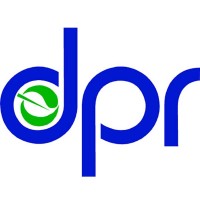SPM and IPM Overview
What are Sustainable Pest Management (SPM) and Integrated Pest Management (IPM)?
Sustainable Pest Management (SPM) is defined in Food and Agricultural Code Section 11412 as a holistic, whole-system approach applicable in agricultural and other managed ecosystems and urban and rural communities that builds on the existing practice of Integrated Pest Management (IPM) to include the wider context of three sustainability pillars:
- Human Health and Social Equity: mitigate the impacts that pesticides have on communities.
- Environmental Protections: understand linkages between pesticides and broader issues, like water conservation, biodiversity, soil health, and climate.
- Economic Vitality: a broader consideration of economic benefits and impacts.
SPM is an evolution of the IPM concept. IPM is defined in Food and Agricultural Code Section 11401.7 as “an ecosystem-based strategy that focuses on long-term prevention of pests or their damage through a combination of techniques such as biological control, habitat manipulation, modification of cultural practices and use of resistant varieties. Pesticides are used only after monitoring indicates they are necessary according to established guidelines, with treatments designed to remove only the target organism. Pest control materials are selected and applied in a manner that minimizes risks to human health, beneficial and nontarget organisms, and the environment.”
The definition of sustainable pest management was established in statute through Assembly Bill 2113, which was signed by Governor Newsom in July 2024.
At the California Department of Pesticide Regulation (DPR), we think of IPM as any approach that uses the least toxic, effective method to solve pest problems.
Why is the State Accelerating a Transition to Sustainable Pest Management?
Pest management is critical to protecting California’s healthy food supply, the health of Californians and our environment, and the maintenance of our infrastructure.
As climate change and severe weather introduce new and increasing pest pressures, current tools become less effective at managing pests, and scientific studies identify significant impacts of high-risk pesticides that require increased restrictions on their use, California is focused on bringing safe, effective pest management tools to market faster.
What is the Sustainable Pest Management Roadmap?
Over a period of nearly two years with funding from the 2020 Budget Act, DPR, together with the California Environmental Protection Agency and the California Department of Food and Agriculture, collaborated with a diverse, cross-sector work group that included a range of agricultural representatives (conventional and organic agriculture, pest control advisors, chemical input companies), urban representatives, community and environmental organizations, academic researchers farm advisors, and government representatives to develop the Sustainable Pest Management (SPM) Roadmap. The Roadmap consists of recommendations and goals to accelerate a systemwide transition to safer, sustainable pest management. We released the final Roadmap in January 2023.
The SPM Roadmap brings together a vision promoting human health and safety, ecosystem resilience, agricultural sustainability, and economic vitality in a changing environment. It promotes a collaborative approach to managing California’s complex and challenging pest problems sustainably, transitioning from high-risk pesticides to available safer, affordable, feasible alternatives, and advancing a holistic, whole-system approach that integrates the needs and interests of all those connected to and impacted by pest management.
By 2050, the Roadmap’s goals are for California to replace priority high-risk pesticide use with sustainable pest management and for sustainable pest management to become the state’s de facto pest management system.
Learn more by reading the SPM Roadmap.
IPM and SPM Partner Resources
We work in collaboration with other organizations to support the adoption of IPM and SPM in agricultural and urban areas.
University of California’s IPM Program
The University of California’s IPM Program infuses knowledge about home, garden, turf, landscape, natural environment, and exotic and invasive pests into a safe pest management program for the state.
Visit UC IPMCalifornia Department of Food and Agriculture (CDFA)’s Program
The Integrated Pest Control Branch of CDFA orchestrates pest programs that include management and eradication.
Visit CDFADPR IPM Achievement Awards
We recognize and award organizations and individuals who are leading the adoption of safer, more sustainable pest management in California. Each year, we honor California organizations and individuals for their IPM achievements.
IPM Achievement AwardsSign Up for Email Updates
Keep in the loop by subscribing to one or more of our email distribution lists.
Still have a Question or Need More Information?
Please contact us with questions or visit the Contact Us page on our website to connect with other programs at DPR.
